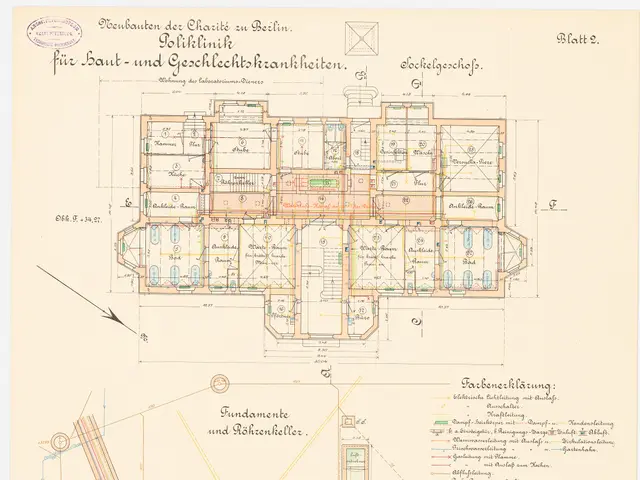NATO taps Airbus to spearhead research on the future Rotorcraft Capability, known as Next Gen Rotorcraft study.
NATO's Next-Generation Rotorcraft Capability Project Gains Momentum
The NATO Support and Procurement Agency (NSPA) has taken a significant step forward in its mission to modernize military rotorcraft technology with the launch of the Next Generation Rotorcraft Capability (NGRC) project. The strategy to launch 3 parallel contracts awarded by competition aims to maximize industry expertise, opportunity, and engagement in the program.
The NSPA, headquartered in the Grand Duchy of Luxembourg, with main operational centres in France, Hungary, and Italy, is at the helm of this ambitious project. The agency, which employs over 1,500 staff and oversees more than 500 contractors worldwide, is committed to delivering a program that will deliver on its promise to maximize industry expertise, opportunity, and engagement.
One of the key partners in the NGRC project is Airbus Helicopters. Each partner will contribute to the study in its area of expertise, including helicopter design, systems integration, connectivity, weapons and effectors, avionics, and sensors. Airbus, one of the world's largest suppliers of advanced military rotorcraft, with over 140 armed forces relying on its helicopters, brings a wealth of experience to the table.
The study will analyze two integrated concepts of next-generation military rotorcraft. The broad range of Airbus helicopters includes dual platforms like the combat-proven H225M and the H145M, as well as specialized military helicopters such as the Tiger and the NH90. The study will be fully interoperable with other NATO means and will focus on high-performance rotorcraft.
The NGRC project is a significant milestone for the NSPA's NGRC concept stage activities. NSPA General Manager, Ms. Stacy A. Cummings, stated that the launch of Concept Study #5 is a significant milestone for the NGRC concept stage activities. The project aims to develop a European solution that fulfills the needs of NATO armed forces while ensuring industrial sovereignty for European nations, according to Bruno Even, CEO of Airbus Helicopters.
The project involves France, Germany, the United Kingdom, the United States, Ireland, and Italy. While the specific roles of RTX's Collins Aerospace and Raytheon businesses, MBDA, and the participating nations are not yet clear, it is certain that they will play crucial roles in this ambitious project.
The NGRC project is a testament to the commitment of the NSPA, Airbus Helicopters, and other partners to develop innovative, high-performance rotorcraft that will serve the needs of NATO forces for years to come. The project's focus on modular, multi-mission, and fully interoperable rotorcraft, coupled with a high degree of connectivity and resilient communication systems, promises to revolutionize the way NATO forces operate. The NGRC project is poised to set a new standard in military rotorcraft technology.
The Next-Generation Rotorcraft Capability (NGRC) project, led by the NATO Support and Procurement Agency (NSPA), aims to engage the aerospace industry, particularly Airbus Helicopters, in the development of high-performance, multi-mission rotorcraft that will be interoperable with NATO means. The project seeks to ensure industrial sovereignty in finance and technology, with contributions from various European nations and industry partners like Collins Aerospace and Raytheon from the United States, MBDA, and others.
The adoption of connectivity, weapons and effectors, avionics, and sensors technologies by the partners will revolutionize the way NATO forces operate, promising a new standard in military rotorcraft finance and technology.








